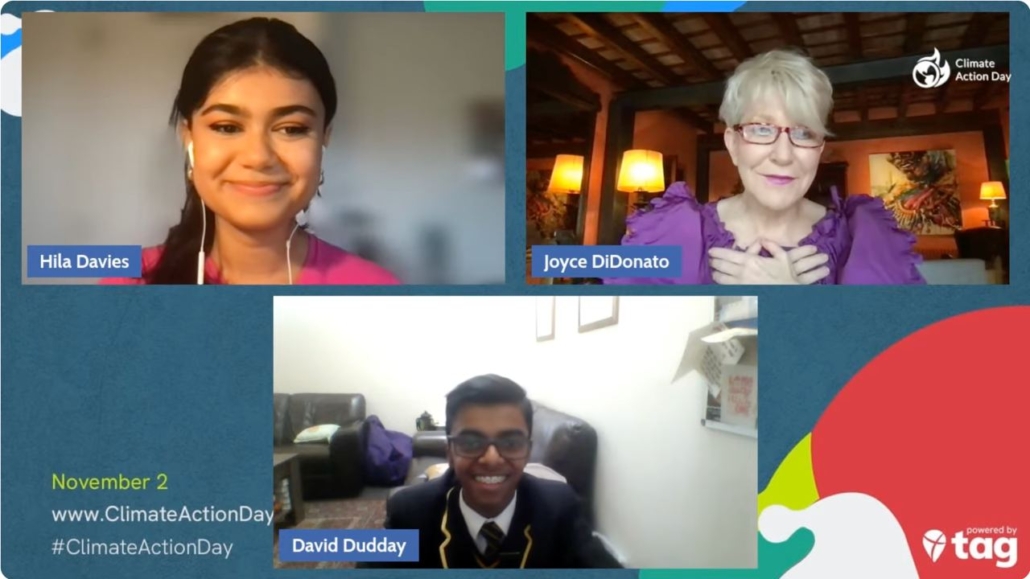Climate Action Day 2023
A reflection by Scott Kennedy, Take Action Global Climate Scientist
As the sun sets on Take Action Global’s Climate Action Day 2023, we can all pause to reflect and appreciate the overwhelming synergy created by so many impassioned students, educators, scientists, activists, astronauts, athletes, and community leaders who came together to share their stories. Despite differences in age, culture, race, or region, the common thread woven by all is the need to take action to insure a sustainable future for our planet.
The perspective provided by Nicole Stott, as she viewed Earth from the International Space Station, highlights the finite fragility of our home planet, when viewed from space as compared to the seemingly infinite seas and sky we observe from our perspective on the surface. The astronauts aboard the ISS live in a micro world in which they must monitor their life support systems through the collection of scientific data on a constant basis. Any variation in their environmental conditions require immediate action to avoid potential catastrophe. The very lives of the astronauts requires understanding the science of the systems supporting the climate of their orbiting habitat. The systems supporting life on Earth are much more complex than those aboard the ISS. Both living and non-living components of these systems interact to create and regulate a climate suitable for a habitable world. Understanding how human activities impact these systems is essential to taking appropriate and effective action to mitigate and adapt to the effects of climate change.
Climate education creates awareness and understanding of the science of sustainability and promotes appropriate and effective actions at individual, community and even global levels. Most who have studied climate science are aware that burning fossil fuels produces greenhouse gasses that contribute to global warming and climate change. Though, as was pointed out today by Anna Richert, Miriam Prager, and Alexandra Apelsten, food production accounts for ⅓ of global climate impacts through the changing of landscapes and the production of heat trapping greenhouse gasses. Industry, energy production, and transportation are also key contributors to the climate crisis. Understanding the science behind the causes and effects can help to lead us to solutions to these and the many other variables that are impacting global climate.
Through global communication and cooperation, we have a better chance of coming up with sustainable solutions. “Pooling resources and knowledge accelerates progress” exclaimed Butti Almheiri in his CAD presentation. He also stated “diversity of thought leads to innovation” which perfectly sums up the goal of Take Action Global and Climate Action Day!



